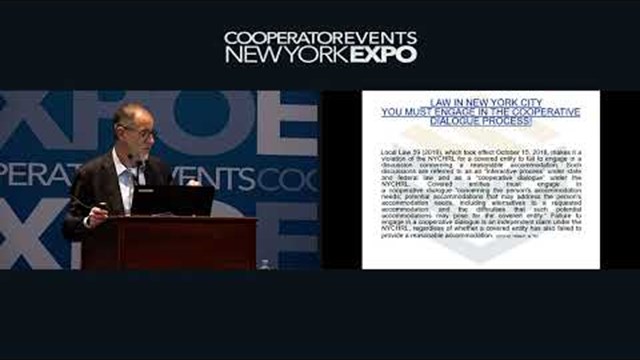
Q. In our parking garage we have access to a bike storage room and an outside bike rack that is next to a resident's handicapped parking spot. Right now the only way to get to the bikes is to "trespass" over the parking spot. Our concern is that if someone parks a larger vehicle or if we want to add more racks, we might not be able to access the space. Also if someone were to damage a parked car by trying to remove their bike, we will have a hard time managing fault. Could a future owner of the spot deny access because of not wanting anyone to trespass over the spot? Is the spot public or private property?
In addition, there is a trash room also next to a small parking spot and we could potentially face the same problem of not being able to access the space because of a vehicle obstruction. The board told us that the developer has the right to sell both of these spaces. Does the board have any say in the matter? Do they have the power to force the developer not to sell the parking spots?
—Blocked in Bayside
A. “A condominium sponsor owes unit owners what it promised them in the condominium’s offering plan,” says attorney Leni Morrison Cummins, a member of the Real Estate Department at the Manhattan-based law firm of Cozen O’Connor.
“The offering plan should contain a very detailed description of the property including floor plans. If the description of the property and the floor plans include access areas to the bike and trash rooms as common elements, then the unit owners and the board of managers have cause to demand that the sponsor provide such access areas to the condominium.
“In general, the board of managers cannot prevent the sponsor from selling the parking units. However, if the sponsor promised in the offering plan that those areas would be common elements, the board of managers can rightfully demand that the sponsor deliver those areas to the condominium as common elements, rather than sell those areas as parking units. If the board of managers commences a lawsuit against the sponsor to declare the areas where the parking units are located common elements, it may simultaneously file a lis pendens. The lis pendens will have the effect of placing potential purchasers of those parking units on notice that title to those parking units is not clear, which will halt the sale of those units pending the determination of the lawsuit.
“If the offering plan is unclear regarding access to the bike and trash rooms, the board of managers can try to negotiate with the sponsor to acquire the parking units needed for access. Once the board of managers acquires the parking units, it can simply not allow the spaces to be used for parking.
The parking units are privately owned, either by the sponsor while unsold, or by those who purchase them from the sponsor. Future owners of the parking units will have the exclusive right to park their vehicles in the parking units, however, the parking unit owners may not deny access to those who must walk across the parking units to gain access to the bike and trash rooms.”






Leave a Comment